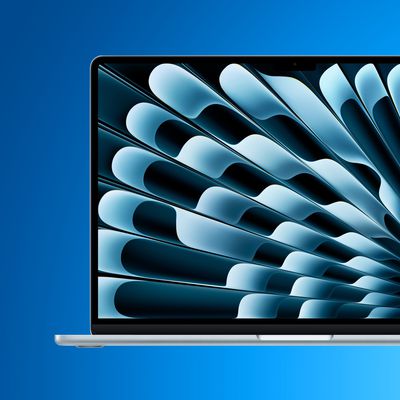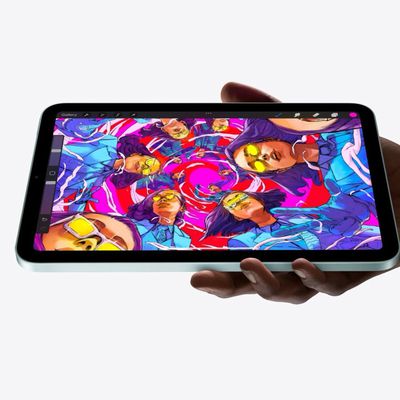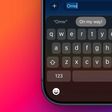As the legal dispute between Apple and Qualcomm continues, Qualcomm this week has requested an injunction to force Apple's iPhone manufacturers to keep paying royalties during the legal battle (via Axios). Last week, Qualcomm sued four of Apple's suppliers -- Foxconn, Pegatron, Wistron, and Compal -- for "breaching their license agreements" by failing to pay royalties on the use of Qualcomm's technology in the assembly of Apple's devices.
Now, Qualcomm is trying to force the suppliers to continue to make royalty payments amid the legal scuffle with Apple. According to Qualcomm's general counsel, Don Rosenberg, the company believes that "it is only fair and equitable" that the suppliers pay for Qualcomm's licensed technology.

"We are confident that our contracts will be found valid and enforceable but in the interim it is only fair and equitable that our licensees pay for the property they are using," Qualcomm general counsel Don Rosenberg said in a statement to Axios.
In April, Apple decided to stop making royalty payments to its manufacturers in relation to Qualcomm technology, and said it would continue doing so until the conflict was resolved. Now, in an amended section of its earlier lawsuit, Qualcomm claims Apple has promised to compensate its suppliers for any monetary loss potentially faced during the lawsuit.
According to Qualcomm, this is a tactic enacted by Apple "to make litigation unbearable" and to force a settlement, because Qualcomm claims that Apple knows it would not win if the case eventually made it to court.
By withholding billions of dollars in royalties so long as Qualcomm defends itself against Apple's claims, Apple is hoping to make litigation unbearable for Qualcomm and, thereby, to extract through a forced settlement what it knows it cannot obtain through judicial process—a below-market direct license. Apple's tactics are egregious.
The lawsuit began with an FTC complaint regarding Qualcomm's anticompetitive patent licensing practices, for which Apple sued Qualcomm, accusing the company of charging unfair royalties for "technologies they have nothing to do with." The argument died down for a few months until Apple ceased royalty payments to its suppliers in April, which particularly hurt Qualcomm because the company's licensing deals are directly with iPhone suppliers and not Apple itself.


















Top Rated Comments
McDonalds corporate sets the price, not the franchise, and you will pay the same amount for your burger regardless of whether the franchise is paying McDonalds $100K/year in royalties or $500K/year in royalties.
On the flip side, this can also be beneficial to small manufacturers and lower-end consumers who want to have access to valuable IP in a more affordable product. Now someone buying a $200 phone can have the same technology in some respects as someone buying a $900 phone. That's great for consumers because luxury manufacturers are far less likely to pass savings on to consumers than low-end producers are to pass on cost.
Apple absolutely would not pass those savings onto the consumer. However, Samsung or Motorola might pass a new expense on to consumers. It's much easier for Apple not to lower the price than it is for a low cost phone to keep the price from going up.
At the end of the day, don't sign contracts you don't like. If Apple wants to pay less, then just lower the cost of the phone. Apple is not entitled to make a certain profit on their phone any more than Samsung or Motorola is.
Qualcomm says, "sell more phone for less money instead of less phones for more money, benefiting consumers, and we'll charge you less per phone." Sounds like a great deal for consumers. Apple doesn't want to operate on the strategy, so tough luck for them.
Basically part of the cost of a phone is paying the royalties to various patent holders. Then the factory sells the completed phone to the brand name wholesaler/retailer (e.g. Apple). In this case, the royalty is on the price the factory sells the phone to Apple for, which is a LOT less than the huge profit markup they make later on.
Note that these contracts did not change when the factories started making iPhones. Nor does the contract change if any other modem is used. So no, Apple was not singled out for higher payments, nor were they prevented from using any modem they wished.
The factories are supposed to be paying QCOM directly. They always have. But Apple told the factories that they would no longer pay them for the QCOM part of the iPhone cost.
That leaves the factories in the lurch with millions of iPhones. They would rather give into Apple by selling them iPhones for less, and instead tell QCOM that they cannot pay the royalties.
The reality is that the factories should be suing Apple for breach of contract, but they're too scared to do so.
Apple is indeed lucky that most others do not play as nasty as they do.
On the contrary, this pro-rated system is what allows for cheap phones which have led to more users, which leads to more network, which leads to more sales for the profit hungry high priced makers like Apple.
As for "fair", this is exactly how every other cellular patent license has worked for decades. Moreover, Apple itself loves charging by percentage of a sale:
Is it "fair" that every iPhone app developer pay Apple 30%, even though the cost of storing and serving each app is basically the same? Is it "fair" that Apple charge banks a percentage of every Apple Pay purchase, even though the same NFC hardware is used every time?
Also your McDonalds example is not at all relevant.
[doublepost=1495733892][/doublepost]Yeah, it makes total sense that the company with a stranglehold on standards-essential wireless communication patents demanding exorbitant royalties from companies like Apple and Samsung leads to "cheap phones." Try to square that circle for all of us here and at the FTC as well, since they seem (correctly) to see Qualcomm's terms as extortion.